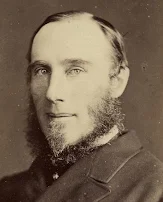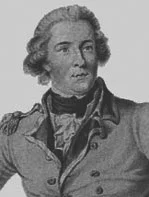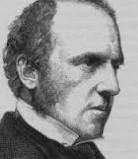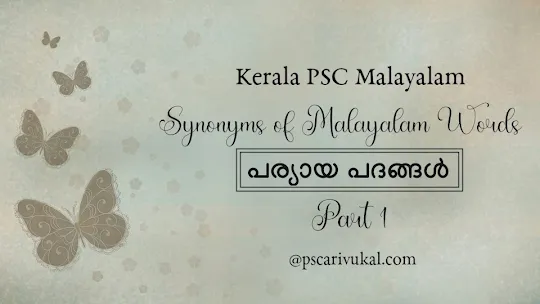The Council of State was the upper body of British India's legislature (the Imperial Legislative Council) established by the Government of India Act 1919.
The term 'Viceroy' first appeared in the Royal Proclamation of 1858 and has the meaning the representative of the British Sovereign.
In the British peerage ranking system, inherited ranks are preceded with "Lords," whereas those bestowed positions for meritorious service to the British Crown are prefixed with "Sir."
Table of Contents
- Brief History
- Lord Canning (1856−62)
- Lord Elgin (1862−63)
- Lord John Lawrence (1864−69)
- Lord Mayo (1869−72)
- Lord North Brook (1872−76)
- Lord Lytton (1876−80)
- Lord Ripon (1880-84)
- Lord Dufferin (1884−88)
- Lord Lansdowne (1888−1894)
- Lord Elgin II (1894−99)
- Lord Curzon (1899−1905)
- Lord Minto II (1905−10)
- Lord Hardinge II (1910−16)
- Lord Chelmsford (1916−21)
- Lord Reading (1921−26)
- Lord Irwin (1926−31)
- Lord Willingdon (1931−36)
- Lord Linlithgow (1936−43)
- Lord Wavell (1943−47)
- Lord Mountbatten (1947−48)
Brief History:
As a result of the 1857 uprising, the British government decided to remove the East India Company's control in India. Thus, the British parliament approved the Government of India Act of 1858, which terminated the Company's hold on India and transferred power directly to the British Crown.
Lord Canning, the British Governor-General of India at the time of India's first independence war (1857 Revolt), was reinstalled as the first Viceroy of India.
List of British Viceroys and major events (1858−1948)
In India, there were a total of 20 British Viceroys. The following is a list of all British Viceroys of India and the events that transpired during their rule.
1. Lord Canning (1856−62)
- First Viceroy & Last Governor-General of India.
As Governor-General
- Annexation of Avadh.
- Enactment of Hindu Widow Remarriage Bill in 1857.
- Establishment of Universities at Calcutta, Madras & Bombay.
- The Revolt of 1857.
As Viceroy
- Government of India Act of 1858.
- Queen Victoria’s proclamation.
- White Mutiny of 1859-61.
- Introduced Income tax in India.
- The Doctrine of Lapse is officially withdrawn in 1859.
- Passed Indian Penal Code (IPC) in 1860.
- Indian Councils Act of 1861.
- Death − 1862 (England).
2. Lord Elgin (1862−63)
3. Lord John Lawrence (1864−69)
- Known as "The Saviour of India & Organizer of Victory."
- Punjab and Oudh Tenancy Act, 1860 enacted.
- Famine Commission was set up under the chairmanship of Sir Henry Campbell after the famines of Orissa in 1865-66 and Bundelkhand & Rajputana in 1868-69.
- Policy of Masterly Inactivity−non-interference in Afganistan.
- Indian Forest Department.
- Opened Telegraph line with England.
4. Lord Mayo (1869−72)
- Established Statistical Survey of India.
- First Census in India in 1871.
- Started financial decentralization in India.
- Passed the Indian Evidence Act in 1872.
- Dept. of Agriculture & Commerce.
- State railways.
- Established the Rajkot College (Kathiawar) & Mayo College (Ajmer) for the Indian princes.
- Assassinated in Port Blair, Andamans by Sher Ali (a Pathan convict) − 1872.

5. Lord North Brook (1872−76)
- Kuka Revolt.
- Deposition of Gaekwad in 1874.
- Visit of Prince of Wales.
- Abolition of income tax.
- Famine in Bihar & Bengal in 1873–1874.

6. Lord Lytton (1876−80)
- Known as "Viceroy of Reverse Chapter."
- Royal Title Act of 1876.
- Organized first royal durbar in Delhi (January 1, 1877) to decorate Queen Victoria with the title of ‘Kaiser-I-Hind’ (Empress of India).
- Foundation of the Mohammedan Anglo-Oriental College, Aligarh−1877.
- Vernacular Press Act, 1878.
- Arms Act of 1878.
- Second Afghan War (1878−80).
- Appointment of first famine commission in 1878 under the chairmanship of General Sir Richard Strachey.
- Introduced Separate Civil Service exams for Indians, 1879.

7. Lord Ripon (1880-84)
- Known as "The Popular Viceroy."
- First Decennial and Regular Census in 1881.
 First Factory Act in 1881 restricting child labor.
First Factory Act in 1881 restricting child labor.- Father of Local Self Government in India (Passed Local Self Government Act in 1882)
- Repeated the Vernacular Press Act (1882)
- Repeated Financial Decentralization in 1882.
- Hunter commission on education (1882).
- Passed the Ilbert Bill (1883) authorizing Indian district magistrates to try European criminals. (Withdrawn later)
- Indian Famine Code of 1883.
- Famous Words − "Judge me by my works and not by my words."

8. Lord Dufferin (1884−88)
- Third Anglo-Burmese War (1885−86).
- Formation of Indian National Congress in 1885.
- Introduce Public Service Commission in India in 1886.
9. Lord Lansdowne (1888−1894)
- Second Factory Act (1891).
- Second Indian Council Act (1892).
- Age of Consent Act in 1891 restricting child marriage under 12.
- Appointed Durant Commission to divide British India and Afganistan (Durand Line).


10. Lord Elgin II (1894−99)
- Bubonic plague in Bombay in 1896.
- Great famine of 1896 − 1897.
- Assassination of W. C. Rand (the British plague commissioner of Pune) by Chapekar brothers on 22 June 1897.
11. Lord Curzon (1899−1905)
 Known as "Aurangazeb of British India."
Known as "Aurangazeb of British India."- First Viceroy to Visit Travancore.
- Indian Coinage and Paper Currency Act in 1899.
- Punjab Land Alienation Act of 1900.
- Agricultural banks were established.
- Established Archaeological Department in 1901.
- Dept. of Agriculture was established in 1901.
- Moncrief Commission on Irrigation in 1902.
- Police Commission under the Chairmanship of Sir Andrew Frazer in 1902.
- Indian Universities Commission in 1902 − Thomas Raleigh commission.
- Established Agriculture research Institute at Pusa (Bihar).
- Cooperative Credit Societies Act in 1904.
- Passed Indian Universities Act in 1904.
- Organized the Archaeological Survey of India.
- Ancient Monuments Act in 1904.
- Famine Commission under Mac Donnell.
- Partition of Bengal into Bengal & East Bengal with Assam in 1905.
- Creation of North Western Frontier Province (NWFP).
- The Viceroy who undertook the restoration of the Taj Mahal – Lord Curzon.
12. Lord Minto II (1905−10)
- Anti-Partition & Swadeshi movements.
- Surat session and Split in the INC.
- Indian Council Act of 1909 or the Minto-Morley Reforms of 1909.
- Foundation of Muslim League by Aga Khan Nawab of Dacca in 1906.

13. Lord Hardinge II (1910−16)
- Shifted India's Capital from Calcutta to Delhi in 1911.
- Partition of Bengal canceled.
- Held coronation darbar in Delhi in the honor of King George V and Queen Mary of England in 1911.
- First World War in 1914.
- Defense of India Act in 1915.
- Gandhiji's return from South Africa in 1915.
- Death of Gopala Krishna Gokhale in 1915.
- Foundation of Hindu Mahasabha in 1915.
- Foundation of Benaras Hindu University in 1916 − Madan Mohan Malaviya as Founder-Chancellor.
- Home Rule Movement under Annie Besant.
- Assassination attempt on Lord Hardinge II by Rash Bihari Bose on Dec 23, 1912.
14. Lord Chelmsford (1916−21)
- Foundation of Women’s University at Poona in 1916.
- August Declaration of 1917 or the Montague declaration − slow transfer of power to the people of India.
- Saddler Commission of 1917.
- Govt. of India Act 1919 (Montague-Chelmsford reforms) − dyarchy in the provinces.
- Rowlatt Act of 1919.
- Jallianwala Bagh Massacre on April 13, 1919.
- Khilafat movement (1919-20)
- The Chamber of Princes in 1920.
- Sir S. P. Sinha (First Indian) was appointed the Governor of Bengal.

15. Lord Reading (1921−26)
- Abolished Devadasi system
- Repeal of Rowlatt Act
- Repeat of Press Act.
- Ahmedabad session of INC held in 1921.
- Moplah rebellion & Wagon Tragedy in 1921.
- Mahatma Gandhi jailed for the first time in India.
- Foundation of Communist Party in 1921 by M N Roy.
- Chauri Chaura Incident (U.P.) in 1922.
- Formation of Swaraj Party by C.R.Das Motilal Nehru in Dec 1922.
- Vishwabharati University in 1922.
- Separated Railway budget from General budget in 1924.
- Lee Commission on Public Service in 1924. (Submitted report in 1924)
- Foundation of Rashtriya Swayam Sevak Sang (RSS) by K.B. Hedgewar at Nagpur in 1925.
- Kakory Train Robbery on Aug 9, 1925.
- Beginning of Indianisation of the officers cadre of the Indian army.
- Skeen Committee or Indian Sandhurst Committee on Army reforms in 1925. (Submitted report in 1926)
- Young Hilton Committee on Currency (1926).

16. Lord Irwin (1926−31)
- Popularly known as "Christian Viceroy."
- Indian States Commission/Butler Commission under Harcourt Butler in 1927.
- Arrival of the Simon Commission in 1928.
- INC passed the Indian Resolution for complete independence (purna smarajya) in 1929.
- Deepavali Declaration in 1929.
- Sard Act of 1929.
- Lahore session of INC in 1929.
- Royal Commission on Indian Labour appointed in 1929. (Submitted report in 1931)
- Martyrdom of Jatin Das in 1929.
- Dandi March on Mar 12, 1930.
- Civil Disobedience Movement in 1930.
- First Round Table Conference in 1930.
- Gandhi-Irwin Pact on Mar 5, 1931.
- Bhagat Singh, Sukhdev & Rajguru were hanged in 1931.

17. Lord Willingdon (1931−36)
- Second (1931) & Third (1932) Round Table Conference.
- Civil Disobedience Movement resumed in Jan 1932.
- Signed Poona Pact. (b/w Gandhi & Ambedkar in 1932)
- Communal Awards by British PM Ramsay MacDonald on Aug 16, 1932.
- Foundation of Muslim Conference in Kashmir (1932). (Important leaders − Sheikh Abdullah & P.N. Bazaz)
- Lees-Mody Pact of October 1933.
- Foundation of Socialist Party by Acharya Narendra Dev & Jai Prakash Narayan (1934).
- Passed Govt. of India Act 1935.

18. Lord Linlithgow (1936−43)
- Longest Serving Viceroy in India.
- Muslim Conference renamed as National Conference in 1938.
- Formation of Forward Block.
- World War II in 1939.
- Deliverance day by Muslim League in 1939.
- Put forward August Offer in 1940.
- Winston Churchill's Atlantic Charter in 1940 and its non-application to India.
- Cripps Mission, 1942.
- Quit India Movement on August 8, 1942.
- Great Famine of Bengal (1943).

19. Lord Wavell (1943−47)
- Royal Naval Mutiny (1946).
- Arrival of Cabinet Mission (Lawrence, Cripps & Alexander − May 16,1946).
- Simla Conference (June 25,1945) and its subsequent failure.
- C.R Formula by C. Rajagopalchari.
- Constituent Assembly boycotted by the Muslim League & Launching of Direct Action Day on August 16, 1946.
- Formation of Interim Government.
- Constituent Assembly was formed on 6th December 1946.
- First meeting of the constituent assembly was held on Dec. 9, 1946.

20. Lord Mountbatten (1947−48)
- Last Viceroy of British India & First Governor-General of the Dominion of India.
- Partition of India on June 3, 1947.
- India Independent Act by the British Parliament on July 4, 1947
- India's Independence on August 15, 1947.

After Lord Mountbatten, C.Rajagopalachari became the last Governor-General of Independent India (June 1948 − 26 January 1950 as well as only Indian to ever held that post) as Nehru disagreed with Mountbatten's choice of Sardar Vallabhai Patel.
📝 Read More:
The above list of British Viceroys of India will be helpful for the aspirants of the various competitive exams. As for PSC, special importance should be given on Lord Curzon and Lord Canning, too many psc questions are based on this topic.
📝SideNotes:
- The ex-officio Chairman of Council of States in India – Vice President of India.








Post a Comment
Post a Comment